A world in need of potty training
It’s shit economics. And pretty lousy ecology, too. Our misuse of human excrement must count as one of the modern world’s worst, but least discussed, resource failures. It is turning rivers into cesspools, destroying soils, harming human health, damaging food supplies and wrecking water supplies.
Application of solid sludge.
Photo Credit: SuSanA Secretariat on Flickr
Faeces and urine are rich in nitrogen, phosphorus and lots of other things that plants need. The stinking, lumpy pathogen-rich effluent pouring from sewer pipes and festering in latrines is not waste: it is free fertiliser. Yet, rather than organising sanitation systems to recycle it onto fields, we mostly pour it into drains and rivers, where it wrecks ecosystems and is probably the main cause of human disease on the planet.
What a failure of rational planning. The world needs a strong dose of what English nannies would call potty training. For the good of both the environment and agriculture, we need to put our poo in the right place -- onto fields.
So let’s cheer the work of the “honey suckers” of Bangalore in India. These make-shift trucks, equipped with tanks and suction pumps, empty the septic tanks and pit latrines where more than half of that city’s nine million inhabitants deposit their daily dump. Once, the trucks conveyed this effluent to local streams and lakes. But now the drivers head for farms around the city, where the sewage is dried and then used to fertilize coconut, areanut and banana trees or other crops.
Farmers pay for human shit. They say their yields soar when they can get their hands of the stuff. So, during parts of the year, the small-time owners of the 300 or so trucks that ply the city’s streets get paid twice: once by the householders and apartment block owners eager to have their overflowing tanks and pits emptied; and once by the farmers. They can recoup the cost of the truck within six months, according to Vishwanath Srikantaiah of Biome Systems, a Bangalore-based green consultancy that has investigated the practice, speaking at a conference in Anand, India in Late November.
A billion or more urban dwellers around the world live in homes that are not connected to sewer systems. In India alone, 160 million households use septic tanks and pit latrines. What happens to their contents remains largely secret, handled by an “informal” industry – some still employing shovels and buckets rather than vacuum pumps and trucks -- that is ostracised by polite society and often criminalised in law.
The ostracism and ignorance extends to researchers who, it seems, avoid poking around in shit. There is, for instance, a startling lack of published material on the economics of wastewater management and reuse.
But from the work of a few hardy souls – from IWMI, NGOs like Netherland-based IRC and enterprises like Biome Solutions -- we know that, despite the opposition of governments and public health authorities, a surprising amount of sewage does make it onto fields.
Perhaps a tenth of all the world’s food is grown irrigated and fertilized with using untreated or poorly treated sewage. In Pakistan, a quarter of all vegetables are grown this way. Some of the sewage is delivered by truck or hand. Some is discharged onto fields from the end of sewer systems.
Yes, this work can be nasty and even dangerous for those who do it and, sometimes, for those who eat the vegetables. But we cannot ignore or criminalize the task itself. We have to improve it, minimize health risks and get the economics right to make it viable. Not least because the raw material is too valuable to ignore.
Theoretically at least, sewage could replace much of the world’s chemical fertiliser. Human excreta is about 3-per-cent nitrogen and up to 2-per-cent phosphorus. A study in Niger concluded that the nutrient content of the excreta of a typical family there was worth the equivalent of 90 kilograms of fertiliser.
City authorities think removing human waste is their job. They strive to extend the reach of their sewer networks and to attach those sewers to treatment works to clean up the effluent before it is poured into rivers. But mostly they fail. Sewer networks do not reach the homes of approaching half of all the world’s urban inhabitants. And even when they do connect, the sewage is rarely treated before being discharged into the natural environment.
Meanwhile, the essential business of emptying septic tanks and latrines is left to shadowy private operators. Even socially progressive and ecologically minded campaigners turn up their noses. Last month I heard Sunita Narain, the director of the estimable Centre for Science and the Environment in Delhi, publicly call the Bangalore shit-collectors a “mafia”.
We need a radical rethink. Raw sewage is too dangerous to be discharged untreated into the environment, but it is also too valuable to be squandered at all. It is not waste; it is a resource.
Some of the more progressive governments in arid countries have started recycling properly treated wastewater. Stand up Israel, Mexico and Tunisia in particular. Singapore is topping up drinking water supplies with treated sewage. And some technologists now talk of urban wastewater as the “new resource”. They foresee sewage treatment works transformed into factories producing energy, bioplastics and minerals as well as fertiliser.
But in most of the world, such ideas are a pipe dream. City growth is outstripping the extension of sewer systems. And the huge volumes of water required to create the flush systems capable of keeping the sewers from clogging are often simply not to be found.
The truth is that the formal high-tech systems are failing. We need cheap, innovative solutions that harness the value of sewage. The conversion of excreta into sanitized fertilizer pellets, being developed in Ghana by the Gates Foundation and IWMI, sounds like a good idea. Likewise schemes are farming fish in wastewater and converting faecal sludge to biodiesel.
But meanwhile we need to recognise the value of the hidden world of honey-suckers and their ilk, as an often preferable alternative to sewer systems. They need to be brought out of the shadows, legitimized, regulated and made safe. As a recent study of Bangalore’s honey-suckers by the IRC, co-funded by IWMI concluded earlier this year, “the absence of regulations hampers the scalability and sustainability of a practice that is observed to have wide-ranging benefits.”




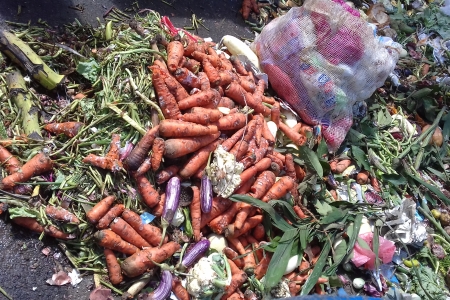


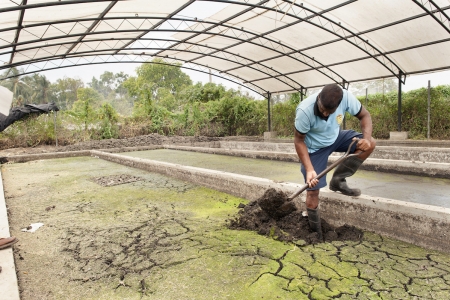
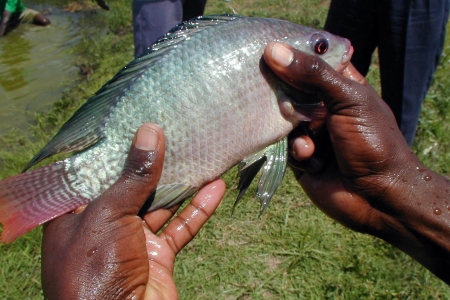
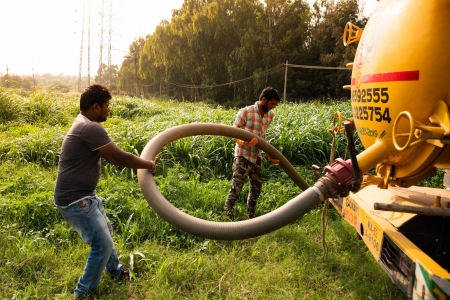
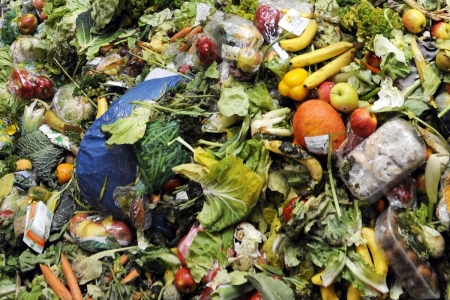

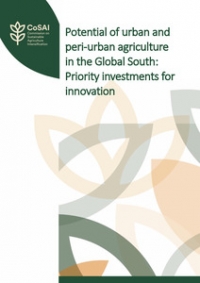
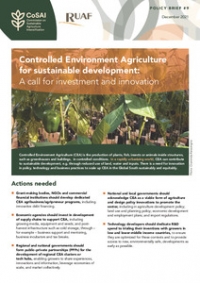
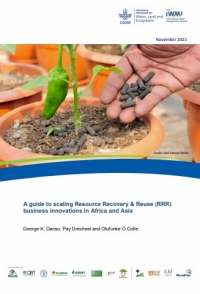

Comments
Does anyone know what percentage of the worlds population does not have access to flush toilets?
Bill Gates! He's funding a big push to invent an alternative, so I expect he knows what the demand might be.
I remember from my environmental studies that there were certain toxic substances and heavy metals in sludge used as agricultural fertiliser that could affect plants and their products. Is this true and if so, what is the safe way of treating sewage for use as fertiliser?
Thoughtful and entertaining article; I would expect no less from Fred. I wonder, though, about the other things that sewage contains that Fred didn't mention. I remember investigations starting in the 1970s about heavy metals in sewage sludge, and a quick internet search turns up many articles on that topic.
I'm not shitting you. It is a real problem, at least in industrialised countries.
The heavy metal problem can be serious when we look at untreated wastewater of mixed domestic and industrial origin. It can also be serious where sludge is produced by wastewater treatment plants which are fed by sewers collecting wastewater from domestic and industrial outlets. Most parts of Fred's article are not about this type of sludge but about the world where sewers remain an exception and fecal sludge is pumped out of the septic tanks or latrines in the backyards of houses. This is in general the poo we are producing, which should not have any elevated chemical threats. Farmers in India, but also Africa realized its value and are paying truck drivers for it. It is then usually dried for some months before use.
So it isn't humans that concentrate heavy metals? That's good to know. Thanks.